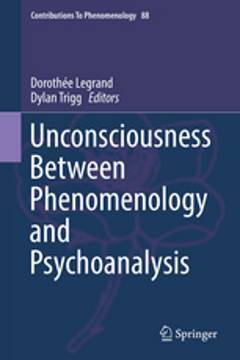Merleau-Ponty's nonverbal unconscious
pp. 75-92
Abstract
Maurice Merleau-Ponty has long been recognized as one of the phenomenologists who took a direct interest in the psychoanalytic unconscious. His interest began early and coursed through his entire career. At each stage he developed his understanding of the unconscious further, always resistant to a literalist reading of the Freudian unconscious. With the Phenomenology of Perception he argued that the Freudian unconscious could be understood in terms of an expanded notion of consciousness in which the ambiguities and unattended aspects of pre-reflective life could cover the ground targeted by Freud 's unconscious. Further development occurred in Merleau-Ponty's courses at the Sorbonne, from 1949 to 1952, in which he carried out an intensive reading of the psychoanalytic literature. From his reading of Melanie Klein he took the notion of a primary symbolism in which the infant's mental mechanisms and defences are at the same time mental and physical. Merleau-Ponty continued his study of psychoanalysis and the unconscious in his lectures at the Collège de France from 1952 to 1060, introducing the notion of oneiric consciousness, in which again, what we call the unconscious is present in the primary process, sleep-like dimension of ordinary conscious life. Finally, he brought all these together, and developed them further, in his final, posthumous The Visible and the Invisible. The unconscious remains non-verbal, silent, invisible – hiding in the crevices of ordinary thought, and providing its hidden framework (membrure).
Publication details
Published in:
Legrand Dorothée, Trigg Dylan (2017) Unconsciousness between phenomenology and psychoanalysis. Dordrecht, Springer.
Pages: 75-92
DOI: 10.1007/978-3-319-55518-8_5
Full citation:
Phillips James (2017) „Merleau-Ponty's nonverbal unconscious“, In: D. Legrand & D. Trigg (eds.), Unconsciousness between phenomenology and psychoanalysis, Dordrecht, Springer, 75–92.


